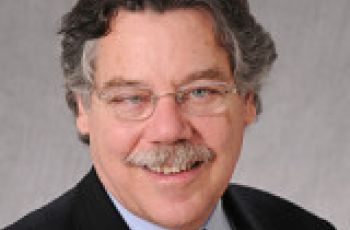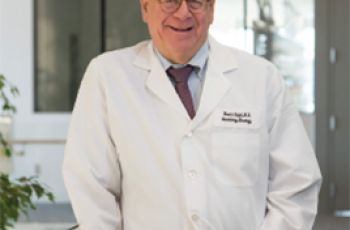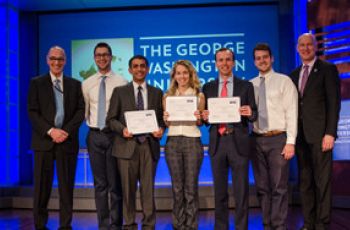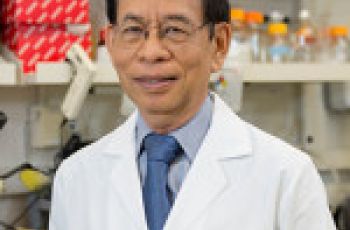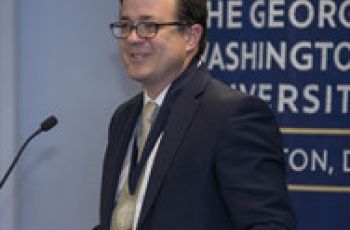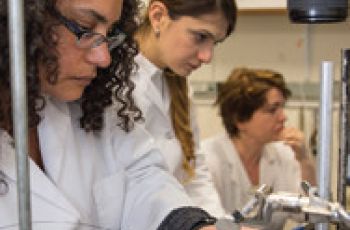Research
With a $2.2 million National Cancer Institute grant, Douglas Nixon, M.D., Ph.D., chair of the Department of Microbiology, Immunology, and Tropical Medicine and Walter G.
An international survey on sun exposure behaviors and skin cancer detection found there are many imperfections and geographic inequalities in prevention of skin cancer.
Sitting in his office on the eighth floor of the Science and Engineering Hall, Mitchell Smith, M.D., Ph.D., associate center director for clinical investigations at the George Washington University (GW) Cancer Center, lays out his vision for a center that pioneers new treatments, rapidly delivers
Robert Siegel, M.D. ’77, has been selected to serve as the George Washington University (GW) Cancer Center’s associate center director for education and training.
On the second day of the 22nd annual George Washington University (GW) Research Days, School of Medicine and Health Sciences (SMHS) students had a chance to show off their work outside the classroom to their peers and the GW community.
African trypanosomes are masters of disguise. Delivered through bites from the tsetse fly, once inside a host these parasites quickly disguise their appearance in a process called antigenic variation, all to avoid detection — and no parasite does it better.
As one of the world’s pre-eminent autism researchers, Kevin Pelphrey, Ph.D., has built a reputation that can open the doors to virtually any medical research institution — and the institution would consider itself fortunate to have him.
In all her years conducting research, Narine Sarvazyan, Ph.D., professor of pharmacology and physiology at the George Washington University School of Medicine and Health Sciences (SMHS), has had several ideas, but one — a cardiac imaging catheter — is the closest she’s come to traversing the info
Immunology Links Research Priorities to Increase Efficiency, Collaboration, and Scientific Discovery

